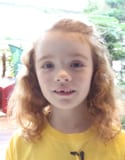
Molly Torinus
7
How do toys affect a baby’s development?
Virtually every theory of child development says that play is crucial to development in every way. It impacts cognitive development, social and emotional development, as well as language development.
It does seem that toys encouraging certain personality traits or styles of playing, like more aggressive play, will have an impact. Kids might play more aggressively if they have toys that encourage aggression.
Researchers sometimes characterize babies and young children as little scientists when they’re playing with toys. They’re testing ideas, creating hypotheses and evaluating them, and trying to solve problems.
The type of toy a child plays with can be important, but how they’re using the toy and whom they’re playing with is also important.
One big message that often comes across in the research is that basic is better.
The toys that might seem the coolest with interesting features, sounds and screens may actually be less beneficial for babies and toddlers.
Toys that have lots of possibilities for open play, less-directed play, can promote more creativity and problem solving. These are characteristics we like to see for positive development.
There’s an emphasis on trying to get away from the notion that certain toys are better for boys versus girls, because some toys are better for all kids.
Toys that are often targeted and intended for young boys—like construction tools and vehicles—are also more likely to encourage positive cognitive development and problem-solving.
These kinds of basic toys really seem to promote math skills and problem-solving and creativity.
